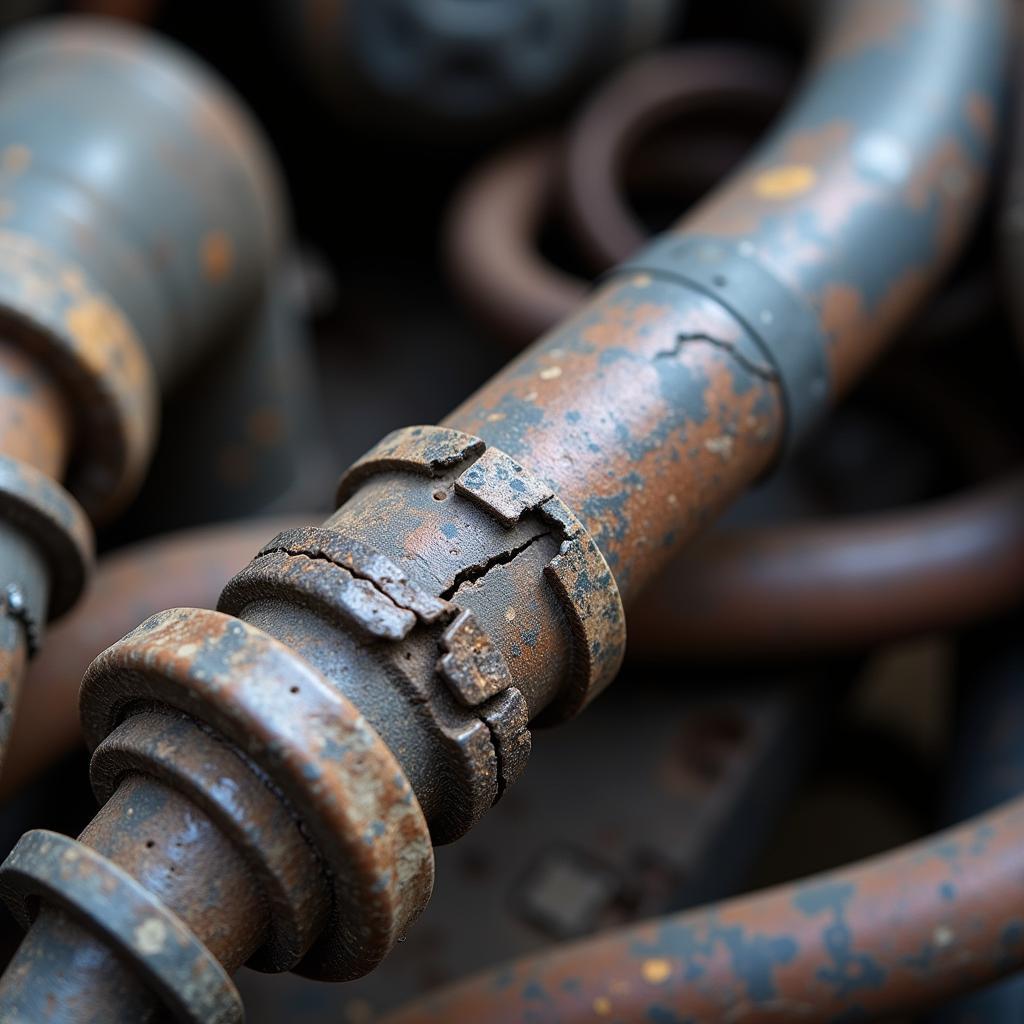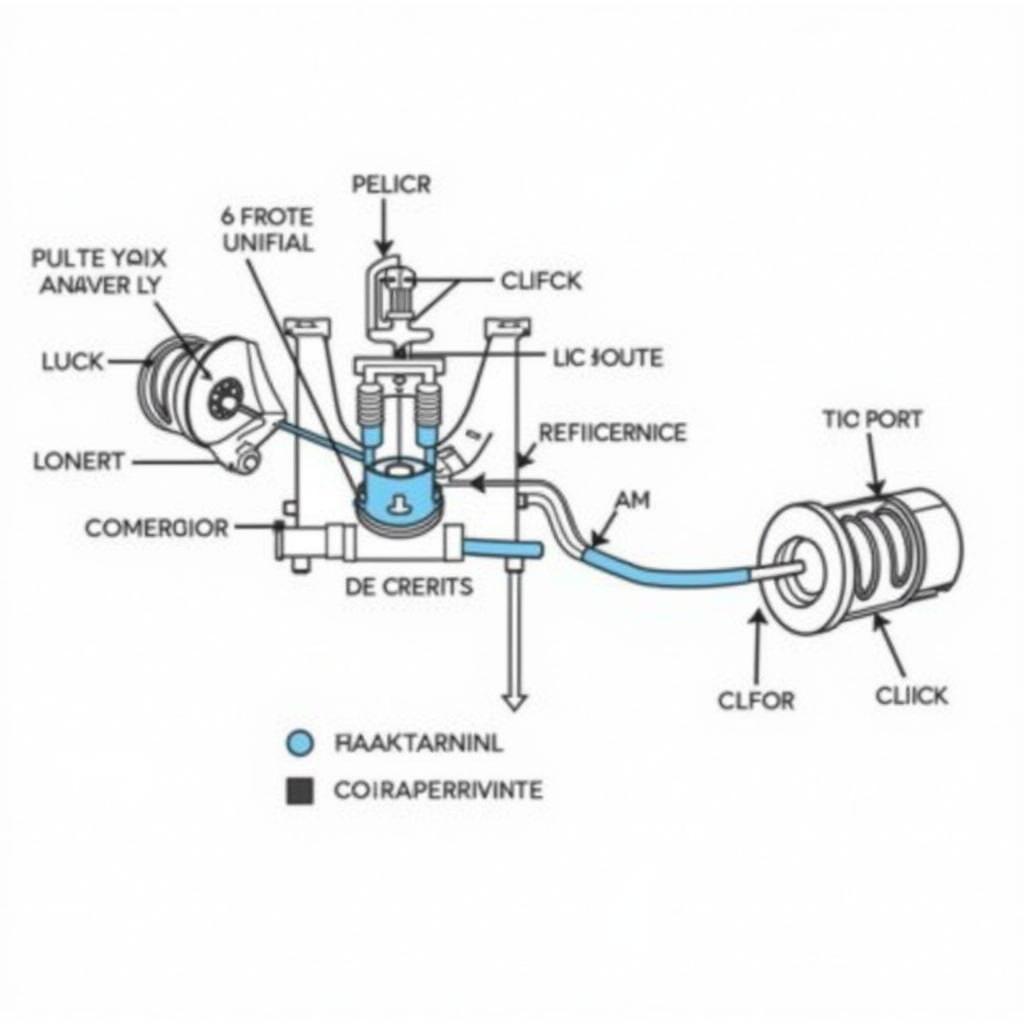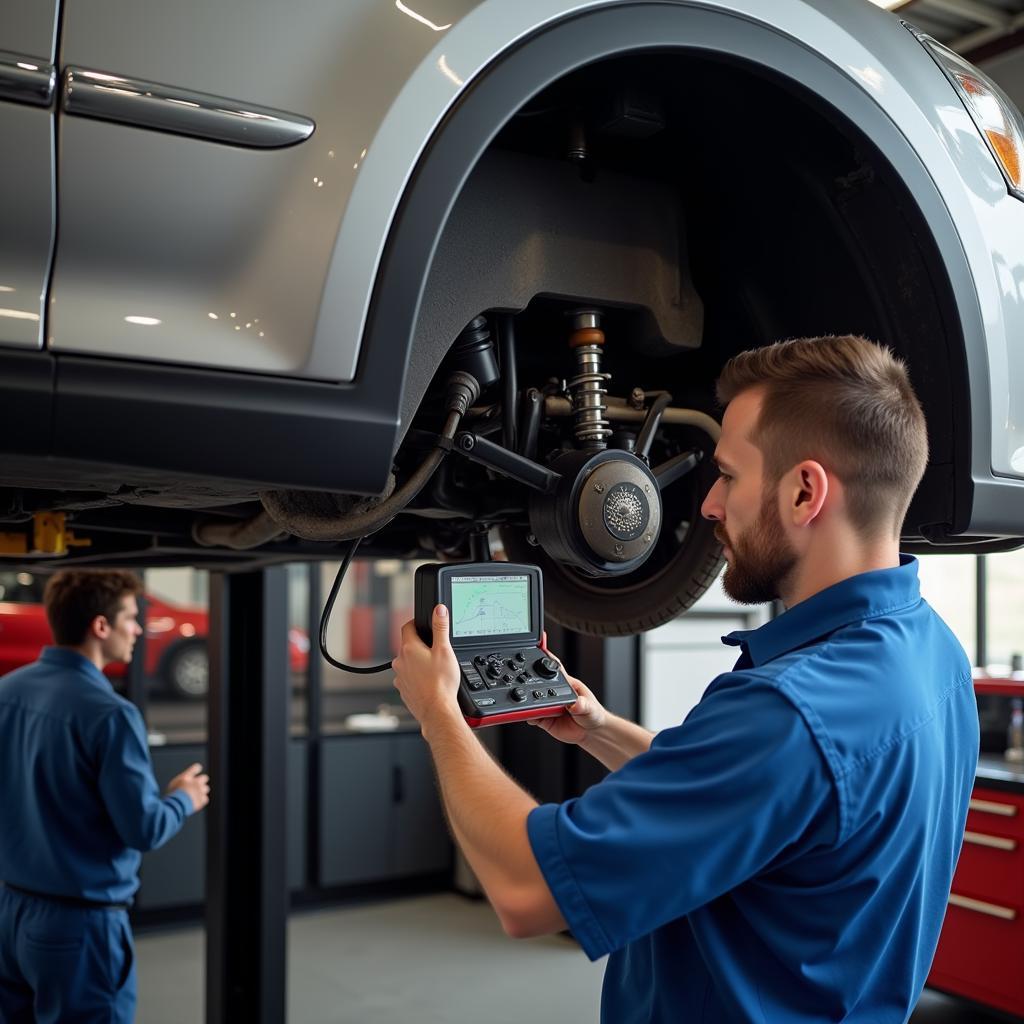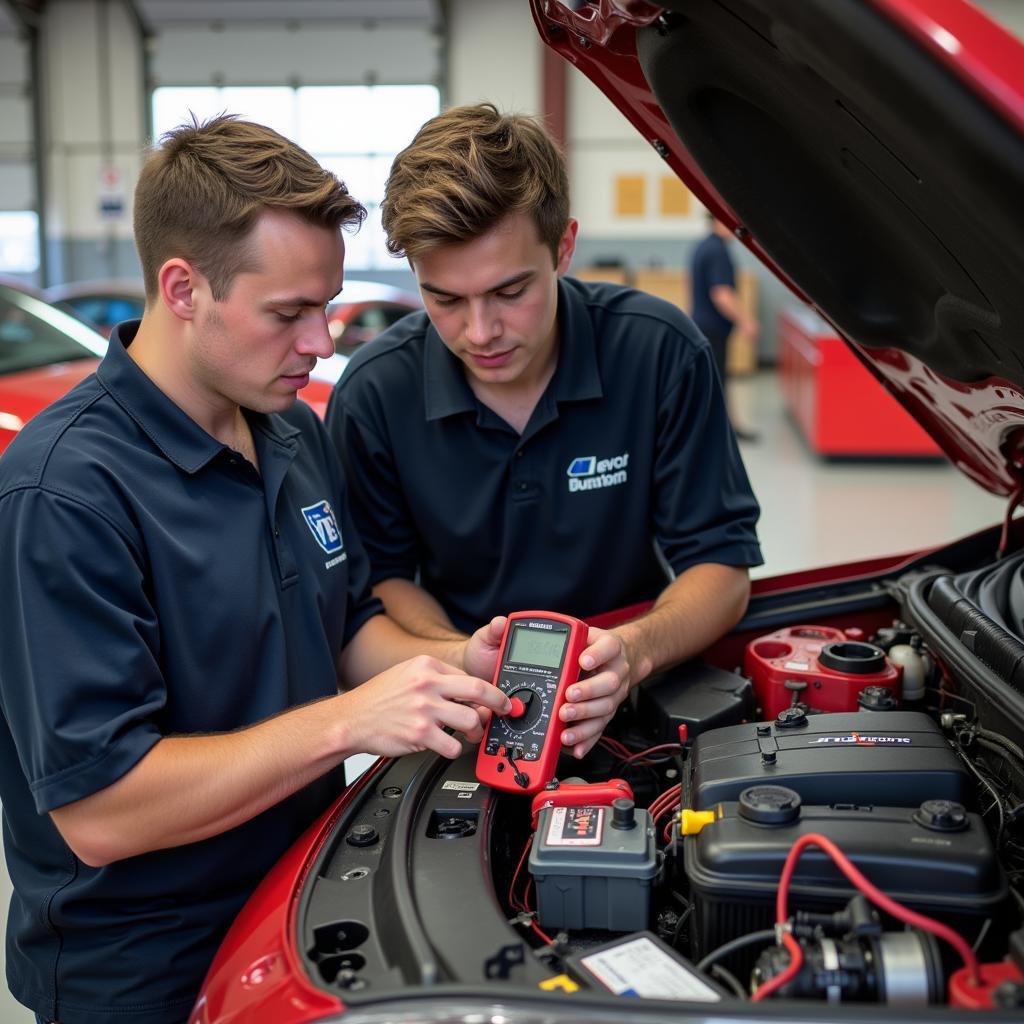Ethanol-blended gasoline is increasingly common, but it can cause a range of problems in older vehicles. These problems stem from the corrosive nature of ethanol and its tendency to absorb water, which can wreak havoc on fuel systems not designed for it. If you own a classic car, understanding these issues is crucial for preserving its performance and longevity.
 Ethanol Damage to Fuel Line
Ethanol Damage to Fuel Line
One of the most common Ethanol Problems In Older Cars is fuel system degradation. Older cars often have rubber fuel lines and seals, which ethanol can deteriorate. This can lead to leaks, fuel contamination, and even engine damage. Similarly, ethanol can corrode metal parts in the fuel system, like carburetors and fuel pumps. This corrosion can lead to reduced performance, starting difficulties, and costly repairs. Have you noticed any leaks or strange smells coming from your fuel system? That could be a sign of ethanol-related damage.
Recognizing the Symptoms of Ethanol Problems
How can you tell if ethanol is causing issues in your classic car? There are a few telltale signs to watch out for. These include:
- Hard starting: Ethanol can make it difficult to start an older car, especially after it has been sitting for a while.
- Rough idling: If your engine idles roughly or stalls frequently, ethanol could be the culprit.
- Reduced fuel economy: Ethanol has a lower energy content than gasoline, so you might notice a decrease in your car’s gas mileage.
- Fuel system leaks: Check for leaks around fuel lines, the fuel pump, and the carburetor.
- Damaged fuel tank: Ethanol can corrode the fuel tank, leading to rust and leaks.
Preventing and Addressing Ethanol-Related Issues
So, what can you do to protect your older car from the damaging effects of ethanol? Here are some practical tips:
- Use ethanol-free fuel: The best way to prevent ethanol problems is to use pure gasoline whenever possible. Although it can be more expensive and harder to find, it’s worth the effort to protect your classic car.
- Use a fuel stabilizer: If you can’t find ethanol-free fuel, a fuel stabilizer can help to minimize the negative effects of ethanol. It prevents the fuel from breaking down and forming corrosive byproducts.
- Regularly inspect your fuel system: Look for signs of leaks, corrosion, and damage. Replace any worn or damaged parts as soon as possible.
- Upgrade your fuel system: Consider replacing rubber fuel lines with ethanol-compatible hoses and upgrading your carburetor or fuel pump with ethanol-resistant components.
- Keep your fuel tank full: A full tank minimizes the amount of air and moisture that can come into contact with the fuel, reducing the risk of corrosion and phase separation.
“Maintaining a vintage car requires understanding the nuances of its fuel system,” explains automotive expert, Richard Peterson. “Ethanol can be particularly problematic, requiring proactive measures to prevent damage.”
Ethanol Gas Problems in Older Cars: A Growing Concern
Ethanol is increasingly prevalent in gasoline, leading to more and more ethanol problems in older cars. This issue is particularly relevant for owners of classic cars and other vintage vehicles. These vehicles weren’t designed for ethanol-blended fuels and are more susceptible to damage. The increasing use of ethanol presents a growing challenge for classic car enthusiasts.
“Regular maintenance and proactive upgrades are key to mitigating the effects of ethanol,” adds Susan Miller, a veteran mechanic specializing in classic car restoration. “Ignoring these issues can lead to significant and costly repairs down the line.”
Finding Ethanol-Free Gas for Your Classic
Finding ethanol-free gas can sometimes be challenging. Here are some resources:
- Pure-gas.org: This website maintains a database of gas stations that sell ethanol-free gasoline.
- Local classic car clubs: Members of classic car clubs often share information about where to find ethanol-free fuel in their area.
- Small engine repair shops: Shops that repair lawnmowers, boats, and other small engines often carry ethanol-free gasoline.
For further assistance with classic car issues, refer to our articles on common problems with classic cars, cars environmental problems, ethanol in cars problems, and ethanol gas problems in cars. You can also find information about the environmental problems with ethanol fueled cars on our website.
In conclusion, understanding the potential ethanol problems in older cars is crucial for maintaining these vehicles. By taking preventative measures and addressing issues promptly, you can ensure your classic car continues to run smoothly for years to come. Feel free to contact us at AutoTipPro for any assistance. Our phone number is +1 (641) 206-8880 and our office is located at 500 N St Mary’s St, San Antonio, TX 78205, United States.







Leave a Reply